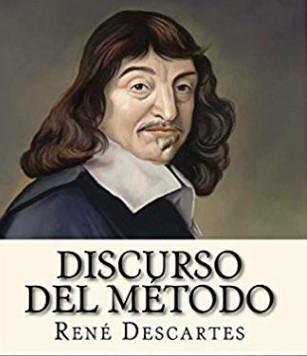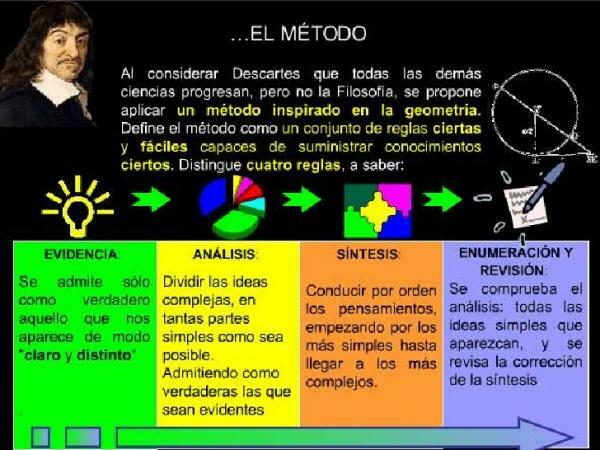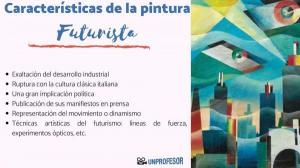The Discourse of Descartes' Method - Brief Summary

In this lesson from a TEACHER, we will briefly summarize the Discourse on the Method for Directing Reason Well and Searching for Truth in Sciences, the masterpiece of René Descartes, which will mark the beginning of modern philosophy. The first edition was published in 1637, and constitutes the prologue of the 3 parts into which the work is divided, namely: The diopter, The meteors and The geometry. The Discourse on the Method as an independent work it was published 3 centuries later. Would you like to know more about the fundamental work of the French philosopher? Let's go there!
The book that augurs the beginning of modern philosophy, The Discourse of the Method, is divided into a preface and six parts.
First part
In the first part of the book of the Discourse on Method, Descartes will deal with the problem of science of the time and his rejection of traditional teaching, from which he only saves mathematics. All the other sciences, lacked the rigor of the mathematical method, capable of reaching true conclusions, although they can be practical or provide an intellectual or aesthetic pleasure.
Second part of the Discourse of the Method
In the second part, he proposes themathematical method as the foundation of all other sciences, the same method for all sciences (mathesis universalis). Descartes's method will be the doubt, which he will use to arrive at firm and evident truths, at certainty. This doubt will be universal, methodical, theoretical, hyperbolic, and exaggerated.
Third part
The third part of the Discourse on method tries to establish rules of action, so as not to leave the field of moral naked, while he does not find a foundation for it. Until the falsehood or truth of the moral precepts of the tradition is proven, we must remain faithful to them, it is In other words, comply with the laws and customs of the country and dedicate ourselves to the exercise of reason, as the only means of advancing on the path of truth.
Fourth part
The fourth part, Descartes find the first undoubted truth, the cogito. It questions reality, the senses, mathematics, everything related to the issue of truth. It is possible that there is a God who deceives us, confuses us and makes us take for true what is not really true. In fact, we cannot even distinguish wakefulness from sleep. But what cannot be doubted is the existence of a being that doubts, that is, of a thinking subject. When I doubt I think, therefore I exist, concludes the philosopher, and in this way he finds the starting point and foundation of knowledge, the thinking substance or res cogitans. The I think, constitutes a idea clear and distinct and the first obvious truth in the history of universal thought.
Descartes realizes that in the very act of doubting, the thinking subject shows his imperfection, an idea that he can only arrive at in opposition to the idea of perfection, by comparison. That is, if there is something imperfect, there must be something perfect. And this perfect something cannot be anything but God. In this way, the reality of the world is demonstrated for the philosopher, dismantling the hypothesis of the evil genius. A perfect God cannot deceive us, and furthermore, they have to exist, just like the outside world and the information provided by the senses. This is the \ It \ him Deus ex machina by Descartes, which is pulled from the sleeve to deny the existence of evil genius and the existence of God.
Fifth part of the Discourse on the Method of Descartes
The fifth part is dedicated by Descartes to applying the mathematical method to the natural sciences, to the physical, since the philosopher that the whole universe is governed by mathematical laws, conceiving it as a great machine, just like the body of living beings.
Part six
In the sixth part of the Discourse on Method, Descartes confesses the reasons that lead him to delay his publication and the philosopher's fear of being rejected by Galileo Galilei, although it is true that the French defends geocentrism and the merely practical function of scientific knowledge, unlike Italian. Also, the rationalist philosopher, defends the need to constitute a scientific community to advance on the path of science, getting closer and closer to the truth.

Image: Slideshare
Here we leave you the 4 rules of the Descartes method:
1ª. Evidence. Do not admit anything as true if you do not know with evidence that it is, that is, carefully avoid precipitation and prevention, and do not understand in my judgments nothing more than that which presents itself so clearly and distinctly to my mind that there should be no occasion to put it into doubt.
2ª. Analysis. Divide each of the difficulties that I will examine into as many parts as possible and as many as your best solution requires.
3ª. Synthesis. Conduct my thoughts in an orderly fashion, starting with the simplest and easiest objects to know, to go up gradually until the knowledge of the most compound and even assuming an order between those that do not precede naturally.
4ª. Enumeration. Doing such comprehensive counts and comprehensive checks on everything that he was sure not to omit anything.
The first rule is directly related to methodical doubt. The rest is about the path that leads to the truth: dividing into simple elements, until gradually reaching the most complex ones, reviewing the results, leaving nothing behind, and checking the relationship that exists between each of the conclusions obtained, that is, do tests.

Image: My Philosophy



